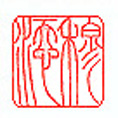— go back
— go back to list of extracts
— skip to next extract

I suppose that the man missed the irony. Having travelled so widely, I had become used to being treated as a foreigner wherever I was, even in my original home. My way of speaking no longer carried a clear stamp of my origin, even when I was using my native dialect. I wondered whether sometime there would be peace in the world: would our differences of interest and attitude and practice sometime be welcomed, accepted and reconciled, instead of encountering, at best, occasional armistices in a perpetual swirl of self-seeking, prejudice, hostility and war? Ouff! Philippus, the local layer-out of bodies, was already on-site, and greeted me.
‘We haven’t moved the body yet,’ he said, gesturing towards the press. This was a hardwood structure, a fathom and a half high, and about the same width and depth. It was mounted on a stone pedestal, with a wooden gutter beneath the narrow slit at the bottom of the press, allowing the oil to flow into an amphora placed in a slot in the pedestal. Strictly speaking, it was not a press, since it was designed for first processing of the olives in which the oil was expressed solely by their own weight. This method was said to give the very best oil. To the right was a donkey-wheel which drove a slatted lift, so that the freshly harvested olives could be loaded at ground level, and would fall into the vat from the topmost point of the lift, when the donkey was at work.
‘Yesterday,’ said Philippus, ‘just before dusk, a first barrow-load of olives had been lifted, making the vat about one-eighth full.’
(2/7)